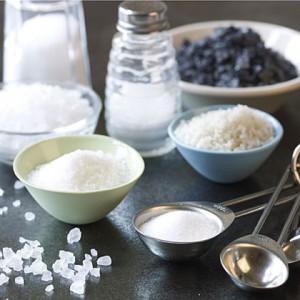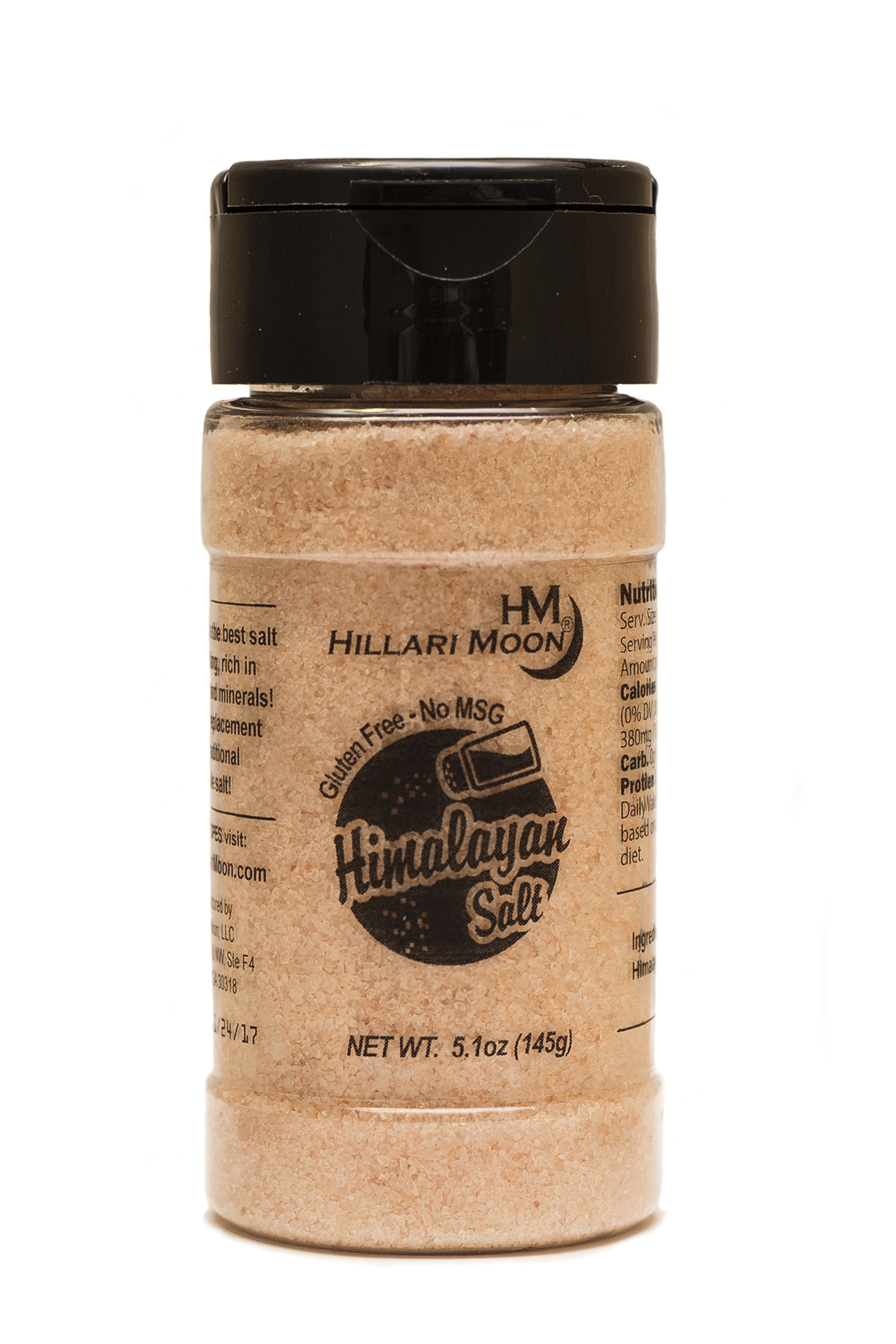

How much salt do I consume?
Americans consume an average of 10 grams (1.76 teaspoons) of salt per day.
· 75% is derived from processed food.

· 20% is naturally occurring or from that added in cooking or at the table.
· The rest comes from sources such as water treatment and medications.
How Much Salt Should I Consume?
Depending on which health group you talk to, everyone has a different target range for their ideal salt intake from 1,500 mg to 2,300 mg per day depending on age and other factors.

Where did these recommendations come from?
The “war on salt” has been around for over 30 years.
There was a massive global study of salt intake and blood pressure called INTERSALT. It compared members of 52 different populations. Four of which were primitive societies who had both extremely low sodium intake and very low blood pressures.

When these four were excluded no correlation (low sodium intake /low blood pressure) was found in the other 48 groups, especially those in the U.S.A. and U.K.

Despite the inadequacy of the data, the US government used the INTERSALT Study to set its official dietary recommendations.
(People with certain kidney problems may see some benefits from reducing salt).
Could the US government dietary recommendations even be harmful?
Evidence since INTERSALT:
· When salt intake was held constant, a diet of fresh, whole foods with lots of fruits and vegetables produced a benefit for blood pressure much clearer than anything the salt restriction studies had been able to find.

· There was increased the risk of stroke and heart attack at either extreme of daily salt intake, both low (just over 1 teaspoon of salt) and high (well over 2 teaspoons of salt). 2 teaspoons of salt per day was associated with the lowest risk of cardiovascular incidents.
· Humans naturally seek out a certain baseline level of sodium ingestion based on an inborn biological need that cannot be modified by governmental warnings.
· Besides sodium, other vitamins, minerals, and micronutrients influence blood pressure levels.
Enter Nutrients via Vegetables and Fruits
Potassium
· Americans consume very low amounts of potassium. A high salt plus a lack of potassium disrupts water balance and causes blood pressure to rise.
· Potassium balances out any detrimental effects of sodium consumption in most people.
· Potassium is found in fruits, vegetables, dairy products, and meats – not processed foods.

Magnesium
· Magnesium can play a small role in helping regulate the balance of potassium, sodium and other electrolytes.
· To obtain enough magnesium add more fruits and vegetables to your diet.
And We Can’t Leave Out Effect of Exercise
· Activity level plays a role in eliminating excess sodium.
· Sedentary or light exercisers, excrete most through the urine.
· Vigorous exercisers purge it through sweat (about 1/2 teaspoon of salt per hour of exercise).
What type of salt should you buy? I choose Himalayan salt-Here’s my favorite:

www.HillariMoon.com
Common table salt has nothing in common with natural salt.
Dried at over 1,200° F, the excessive heat alters the natural chemical structure of the salt.
"Chemically cleaned" salt is 97.5% sodium chloride and 2.5% chemicals such as silicon dioxide, calcium carbonate, magnesium carbonate, and aluminum hydroxide. Aluminum is a light alloy that deposits into your brain -- a potential cause of Alzheimer's disease.
Sodium chloride is an unnatural chemical form of salt that your body recognizes as something completely foreign.
Inorganic sodium chloride can keep you from an ideal fluid balance and can overburden your elimination systems.
It can contribute to: Rheumatism, arthritis and gout, kidney and gall bladder stones, cellulite.
It is void of vital trace minerals and contains potentially dangerous preservatives.
Sea salt is no longer a healthy alternative to table salt.
· The oceans are being used as dumping grounds for harmful toxic poisons like mercury, PCBs and dioxin.
· Oil spills polluting the sea are becoming more frequent.
· 89% of all the sea salt producers now refining their salt.
· It has irregular crystalline structures preventing vital minerals able to be absorbed by the body unless the body expends tremendous energy to vitalize them. Your body's net gain is small compared to the great loss of energy
Mined salt, or rock salt, is also a poor substitute for Himalayan Crystal Salt.
It comes close to being intact and is more valuable than industrial table salt, from a biophysical as well as bio-chemical perspective, it holds little value.
The valuable elements found in rock salt are useless because your body cannot absorb and metabolize them.
Himalayan Crystal Salt is by far the purest salt available on earth.
· It is mined and washed by hand -- with zero environmental pollutants.
· Important trace minerals and elements including potassium, calcium and magnesium. (This salt does not supply iodide, a necessary nutrient.)
· Containing all of the 84 elements found in your body it is easily metabolized by your body. The benefits include:
o Regulating the water content throughout your body
o Promoting healthy pH balance in your cells, particularly your brain cells
o Promoting blood sugar health
o Helps to reduce the signs of aging
o Absorption of food particles through your intestinal tract
o Supporting respiratory health
o Promoting sinus health
o Prevention of muscle cramps
o Promoting bone strength
o Naturally promotes sleep
o Supporting your libido
o Promoting vascular health
o In conjunction with water, it is actually essential for the regulation of your blood pressure
I prefer to use Salt as Nature Intended It -- Pure Himalayan Crystal Salt
Once you try Himalayan salt, I can promise you that you'll never want to use commercial salt again – I know I don't.
The Verdict
For many people, all out salt reduction has an overall negative impact on several other aspects of health and folks with a “medium” salt intake live longer.
A diet rich in fresh, whole foods and lots of fruits and vegetables produced a benefit for blood pressure.
Keep things in balance
Salt is not the enemy.
Make yours Himalayan
